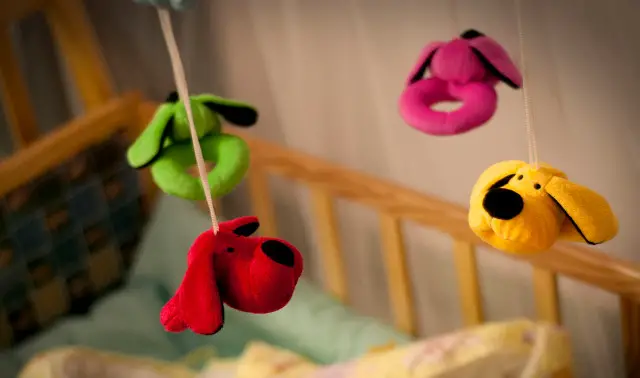Earlier in the week, the Isle of Wight Safeguarding Children Board released details of two Serious Case Reviews (SCR).
For those not familiar with when a SCR is carried out, here’s the official definition:-
Serious Case Reviews are undertaken by Local Safeguarding Children Boards (LCSBs) where
- abuse or neglect of a child is known or suspected; and
- either — (i) the child has died; or (ii) the child has been seriously harmed and there is cause for concern as to the way in which the authority, the LSCB partners or other relevant persons have worked together to safeguard the child.
Baby X: Concern for ‘remaining children’
Given the seriousness of the events and their consequences, OnTheWight will be looking at each case separately.
One case was referred to as Baby T, the other wasn’t given a moniker, so from this point onwards we’ll refer to them as Baby X.
Anonymity
During OnTheWight‘s interview earlier in the week with Maggie Blyth – the chair of the IW Safeguarding Children Board, who signed off the Serious Case Review (SCR) – she stated that because she was so concerned about ‘remaining children’ involved with the case, she’d removed pieces of information from the SCR in an attempt to protect their identity. Unlike the other case (Baby T) no specific detail about the Baby X case has been released that could identify the family involved.
Part of that anonymity involves not declaring if the child died, or was seriously harmed.
Inadequate child protection
As was widely reported, in January 2013 the Isle of Wight council’s child protection was branded ‘Inadequate’ by Ofsted following an inspection in November 2012.
It’s not surprising therefore, that much of Ofsted’s findings of significant failures within the council’s child protection service have been echoed in the SCR for Baby X.
Since this case was brought for review, Hampshire Children’s Services now have control of Children’s Services on the Island and fundamental changes have been made to the operation of child protection.
Praise for certain agencies
Before we get into the more worrying details, it’s worth pointing out that ‘Good practice’ was recognised within the health visiting, mental health services, the named midwifery safeguarding advice and the children’s centre.
The report goes on to say that the “health visitor was exemplary in monitoring the baby’s development and acted appropriately in getting the right medical intervention when this was of concern.”
It’s stated that these agencies were aware of risks to the children involved and shared them with Children’s Social Care at Isle of Wight council. It was there that it wasn’t dealt with in time.
‘Significant failures’
Although anonymised, the report (embedded below), does set out (in 2.7) how the ‘significant failings’ of the council’s Children’s Social Care contributed to the tragic outcome of this case.
The review found:
- A reluctance to accept the implications of the risk factors regularly presented by the mother, either for her or future children
- The full range of risks in the extended family, and from the history, were either not considered or given sufficient credence. Children’s Social Care is best placed to bring together the whole picture
- Deciding that the case needed dealing with at the Common Assessment Framework (CAF) level, rather than responding to the seriousness of the concerns as a ‘child protection’ case
- The CAF assessment was, as a result, led by another agency worker who would not have been trained to assess the level of risk involved
- When Children’s Social Care did agree to do an assessment it was not done in time to impact on some key decisions around the baby concerned Nor was it properly multiagency as required
- The Review concluded that there was a reluctance in Children’s Social Care to engage with mental health professionals
- An assessment of mother to be and family’s capacity with a new child was resisted until too near birth
- When an initial child protection conference was eventually thought necessary on by a social work manager on the baby who was failing to thrive, there was no Strategy Meeting with Police or any other agency first as is good practice, and the Conference was arranged for over three weeks’ time. By that time it was too late to have any impact on protecting the baby
- There was a very serious failure by managers in Children’s Social Care to review and account for decisions in the First Response Unit, and subsequently in the short term unit
What happens next?
Maggie Blyth was keen to stress that “lessons would be learned” from this tragic case and her jobs is to ensure that recommendations coming out of the report are put in place to ensure the future protection of vulnerable children on the Isle of Wight.
Disciplinary action
OnTheWight has asked whether any disciplinary action or sanctions have been taken against staff, despite asking yesterday, we’ve yet to receive a response from the council.
Isle of Wight NHS Trust gave a statement to OnTheWight including:
“In these cases no member of staff was found to be in breach of their code of professional conduct or intentionally neglectful in their duty so as to require disciplinary action.
“All the staff involved fully accepted the findings of the reviews and were keen to take any action required to improve their practice.
“We have learnt lessons from these cases and we have implemented changes to the way in which we identify and handle these difficult cases.”
Our sincerest thoughts are with the family and friends of Baby X. We ask that if readers decide to comment on this article they consider the sensitivity of the case and comment appropriately.
The Baby X report
Image: vijayvenkatesh under CC BY 2.0




